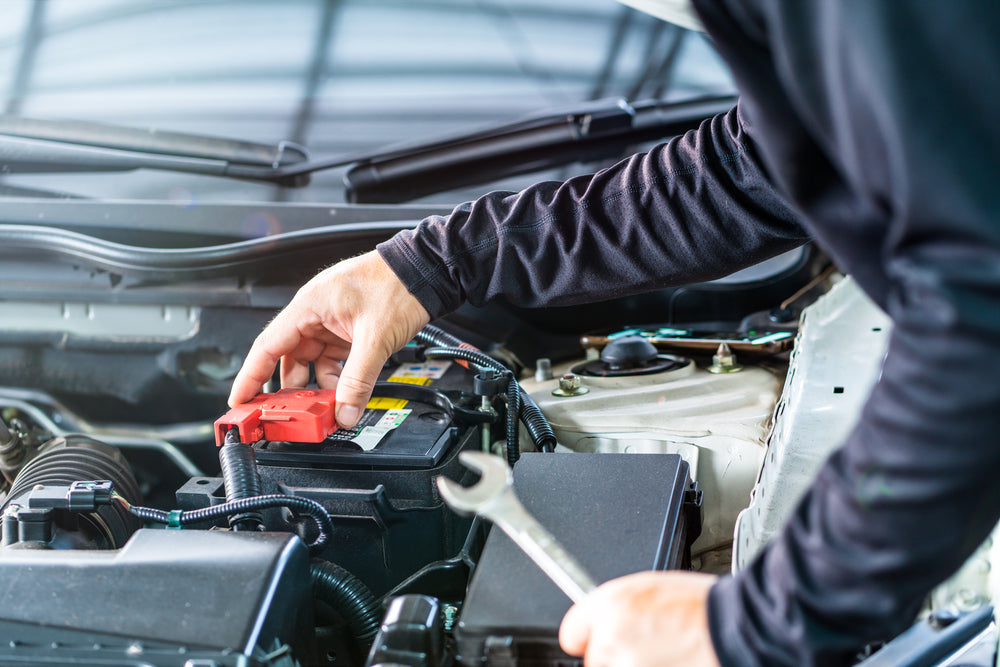The Effect of Hot Weather on Your Car Battery
The heat of summer is harder on car batteries than the cold of winter. Higher temperatures have a bigger impact on the power-generating chemistry inside, which may seem odd. It is important to understand how weather affects your car battery.
It's not simply about the temperature of the air. Summer heat raises the temperature beneath the hood, hastening the start of battery failure. This results in many motorists finding themselves stranded on the side of the road throughout the summer. In the summer of 2018, AAA responded to 2 million battery-related service calls, according to the organization.
To prevent getting stuck, car owners should maintain and replace their vehicle's battery regularly. According to AAA, car batteries normally last three to five years, ranging from 58 months or more in the most northern parts of the country to less than 41 months in the most southern parts. Inspections should be part of an owner's annual maintenance, but they're especially crucial before a long trip.
Options to Maintain Your Car Battery
- Make sure the water level is correct – Hot weather can cause water to evaporate from the electrolyte of a lead-acid battery. Check each cell's water level, and if it's low, top it up with distilled water
- Be proactive in your approach - If your battery is older than four years, it's time to replace it. With each passing year, the odds of your battery failing grow. Look for a four- or five-digit identifier to determine the age of your battery. A letter and a number appear at the start of the code. The letter denotes the month – A denotes January, B denotes February, and so on – while the number denotes the year
- Keep an eye out for rust - Summer's hot weather causes your vehicle's engine to overheat. This heat might develop corrosion inside your battery, causing the current flow to be restricted. Check your battery for signs of deterioration regularly. Use a copper brush or a scouring pad to remove any corrosion
- It should be charged - Consider uninstalling your vehicle's battery and charging it on a trickle charger if you aren’t using it for more than two weeks. This can ensure that your battery is fully charged and ready to use
- Maintain a clean environment - Remove any dirt or debris from the battery's top. The power of your battery might be depleted by grease and grime accumulation. Examine the battery regularly for filth and clean it up right away
- Look for any signs of damage - Look for symptoms of bulges, cracks, or leaks in the battery. If any of these symptoms apply to you, it's time to replace your battery before you're left stranded
- Take it to a professional - Have your mechanic examine the battery and electrical system before the summer heats up. They can detect difficulties before they escalate into larger issues
- Keep it safe - Ensure that the battery is properly placed and that the cables are securely fastened. You may notice a drop in performance if your battery isn't placed correctly
- Examine the feedback - If you need to replace your battery, make sure it's rated the same as the one that came with your vehicle
Choosing the Correct Battery
Car batteries are available in a variety of sizes. There's a lot of variances in which one is the best performer from year to year and from size to size among those that have been examined. This makes it impossible to provide straightforward brand or model recommendations. It also means you shouldn't expect to receive the same results if you buy the identical battery model you're replacing.
Consider an AGM battery if you reside in a location with hot weather and want a maintenance-free battery. Even though AGM batteries are susceptible to high temperatures, they outperform other sealed batteries in various tests.
Based on 15 weeks of continuous testing at above 160 degrees, it has been found that most AGM batteries perform well in a heat focused life testing. And the most recent batch, which is currently being evaluated, appears to be quite promising. In the heat, AGM batteries work well, but their lifespan may be shortened due to the loss of water caused by the high temperatures.
A battery tender can help ensure that a vehicle's battery is ready to start when it's needed if it's being stored for an extended length of time. Make sure the tender is compatible with your vehicle's battery.
Final Thoughts
You have a summer full of fun planned, from shows and coastal outings to holidays and cross-country tours, with your car playing a crucial role. A dead car battery is the fastest way to put an end to a road trip.
Allow nothing to stand in the way of your plans. If you take care of your car's battery, it can be ready to go every time you turn the key.


